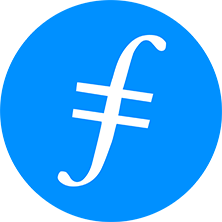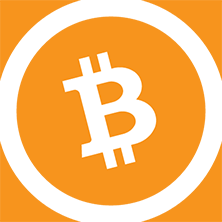Cryptocurrencies, Coins, and Tokens: what's the difference?
The difference between Coins (aka cryptocoins) and the Tokens is one of the things that usually put newbie bitcoiners into confusion and uncertainty. Let's understand what's it all about!
A cryptocurrency is a digital asset, a medium of exchange that uses cryptography to secure the transactions. It's a platform, operating on a blockchain; one of the most frequent use cases for cryptocurrencies are financial transactions. A money transfer is impossible without a unit of value, you can't just "send Bitcoin" to someone without specifying the number of "coins" you wish to transfer.
What is a Coin?
So, the coin is a storage of value, a digital equivalent of money (hence the name), operating on a native blockchain: Bitcoin has its own blockchain, as well as the Ethereum, etc. The coins are issued ("printed") by the network nodes by means of mining (staking).
Some random examples of cryptocoins you can exchange with our help:
Filecoin (FIL)

- rank: #38
- type: Cryptocurrency
- consensus: Custom
- mineable
- Smart Contracts
Solana (SOL)

- rank: #5
- type: Cryptocurrency
- consensus: PoS+ enhanced
- Smart Contracts, Masternodes
Kusama (KSM)

- rank: #187
- type: Cryptocurrency
- consensus: NPoS
- Smart Contracts, Masternodes
And what is a Token?
We hope now you understand what's a cryptocoin. Now let's look at the tokens; although many call the tokens as "coins", it's not the same! Tokens are digital assets, created on existing "third-party" blockchains; it's a sort of obligation of an issuer of these. Tokens are issued by the means of Smart Contracts; any person or organization has the opportunity to issue tokens using such platforms as Ethereum, EOS, NEO, etc.; there is no mining required.
So, anyone can issue tokens, what's their purpose and value, you may ask? There are multiple use cases; there are various types of tokens:
- Security and Equity Tokens — the most widely used ones, usually distributed by the means of ICO crowdsale. The person purchasing such assets is investing money into some enterprise with an expectation of profit.
- Utility Tokens — application tokens or "apptokens". Think of virtual currency like in-game currency or "airline mile bonus", it's almost the same. A person purchases such tokens to get access to a product a service.
- Payment Tokens — used to make payments; the most frequent use case of such tokens are "Stablecoins" (value pegged to a fiat currency like USD), "gold-backed-coins", etc.
Some random examples of tokens you can buy and sell with the help of our service:
So, now you know the difference, right? Although "Payment Tokens" are serving almost the same purpose as the "Coins", the main difference is that Tokens are issued on some Coin's blockchain, token can't be mined and can't function without the platform used to issue one. And remember that it's not important, what are you going to buy: a Coin or a Token, we @ ExchangeRates.Pro will find the best price and safest exchanges for you. Not sure, what to buy? Check our cryptocurrencies list!




